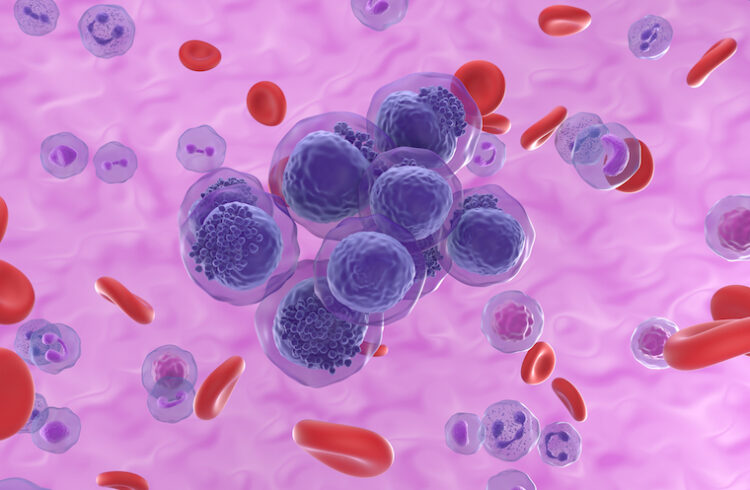
Gynecologic cancer experts Linda Duska, MD, (left) and Kari Ring, MD,
Two University of Virginia Cancer Center experts in gynecologic cancer have outlined simple steps to improve cancer prevention for millions of rural and medically underserved Americans, as well as increase access to clinical trials that are the proving grounds for cutting-edge treatments.
Approximately 20% of Americans live in rural areas, and they face substantially higher cancer death rates than residents of more affluent urban areas. This disparity stems from barriers to accessing cancer prevention, treatment and clinical trial access commonly found in rural and medically underserved areas. That prompted UVA Health’s Linda R. Duska, MD, and Kari L. Ring, MD, to outline a plan in the medical journal Gynecologic Oncology that could ultimately improve cancer care and prevention for more than 75 million people.
"Our goal was to outline and understand the landscape of what is known about cancer prevention and access to clinical trials in the rural patient population with a focus on gynecologic malignancies,” Ring said. “This is the first step to designing studies to improve access to care for these patients.”
Paola Gehrig, MD, professor and chair of UVA’s Department of Obstetrics and Gynecology, noted the importance of Ring and Duska’s work: “It does not matter how impactful the treatment options are if the patients who need our services do not have access to them,” she said. “Highlighting these disparities is the first step in helping patients achieve their highest level of health.”
Barriers to Cancer Prevention and Care
Common obstacles to cancer care, prevention and trial access in rural areas include a shortage of providers, the need to travel long distances and financial concerns, Duska and Ring note. And the problem is only growing worse: In the last 20 years, more than 190 rural hospitals have shut down or converted to emergency care only, leaving many rural residents without easy access to cancer screening or treatment, much less clinical trials.
To improve early detection of cancer, Duska and Ring are calling for expanded genetic testing to identify high-risk patients, as well as efforts to increase human papillomavirus vaccination to prevent cancers associated with the virus, such as anal, cervical, penile and vaginal cancer. (Virginia’s HPV vaccination rates, they note, lag significantly behind other parts of the country, with especially low rates in rural Southwestern Virginia.) In addition, Duska and Ring say that technology such as telemedicine offers a vital means of increasing cancer screening, both by offering screening directly and by educating patients on the importance of screening and helping them identify screening opportunities.
To improve clinical trial access, the UVA cancer experts call for continuing efforts to “decentralize” trials by establishing opportunities for participation outside the urban areas where trials have traditionally been held. This might be in local healthcare facilities or even in participants’ homes, they say. Telemedicine, they note, again could be a key tool. (UVA Health is working to establish a statewide clinical trials network to increase access to clinical trials of all types across Virginia.)
Duska and Ring also emphasize the need to enlist the help of trusted community healthcare providers, both to encourage patients to participate in trials and to advocate for the importance of screening and other cancer prevention efforts. They cite a survey in West Virginia that found that discouragement from an oncologist and family physician was a critical factor in patients’ decisions not to participate in a trial. Ultimately, only 2% to 8% of Americans diagnosed with cancer enroll in a clinical trial, they note.
Duska and Ring say the low rate of participation in trials means many patients can’t take advantage of the latest treatments as they are being developed and tested. This is especially harmful for patients with cancers that lack effective treatment options, they argue. “We must explore novel approaches to clinical trial enrollment as clearly the current methods do not reach a broader patient population, which limits access to new therapies and limits generalizability of trial outcomes,” Ring said.
While much works needs to be done to improve cancer care in rural and underserved areas across the nation, Ring and Duska believe that the simple steps they outline could quickly have a big impact – and save lives.
“Drs. Duska and Ring are bringing a much-needed call to action to address these critical access issues,” Gehrig said. “I am hopeful that we can leverage technology and other initiatives to expand care to all Virginians.”
Better Cancer Care
Duska and Ring’s efforts are part of UVA Cancer Center’s ongoing mission to improve cancer care across Virginia and beyond. In recognition of the cancer center’s outstanding research and clinical care, the National Cancer Institute has designated UVA one of only 56 comprehensive cancer centers in the country. The designation honors elite cancer centers with the most outstanding cancer programs in the United States.
To keep up with the latest medical research news from UVA Cancer Center and the University of Virginia’s School of Medicine and School of Nursing, subscribe to the Making of Medicine blog.



